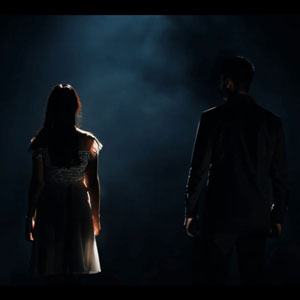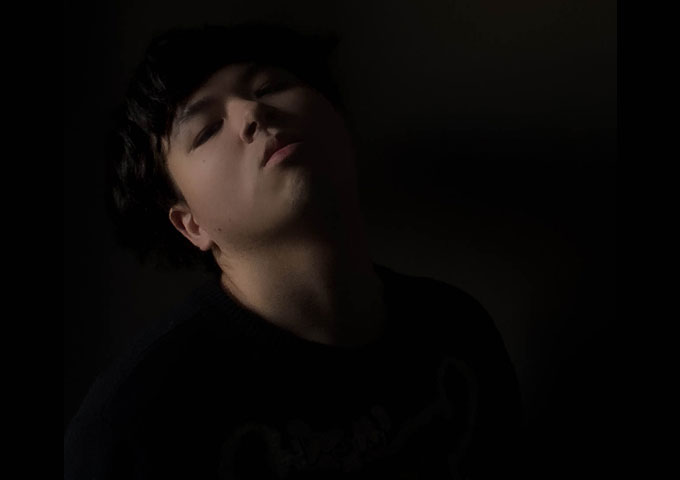A new voice rises from the fertile grounds of musical innovation, blending the rich influences of heritage and heartfelt songwriting. CoupeLejay, a burgeoning acoustic pop-folk artist, makes a stirring entrance with his latest single “Go.” This track not only marks the beginning of his much-anticipated album, ‘How It Ends’, but also solidifies his emergence as a formidable presence in the world of contemporary acoustic music.
At just 20, CoupeLejay—born on January 2, 2004—has already embarked on a journey that suggests both maturity and emotional depth. His sound, sculpted over years of self-discovery and seasoned by time spent in iconic musical cities like Nashville and London, is a delicate yet robust fusion of folk-inspired acoustic guitar work with the resonant introspection of pop melodies. As someone who draws inspiration from his Asian, European, and Hispanic roots, CoupeLejay’s music feels universal yet deeply personal, speaking to a spectrum of emotions that many listeners will find hauntingly familiar.
“Go” is a song that reaches into the emotional complexity of a relationship that devolves from a blessing into a burden. Lyrically, CoupeLejay paints a vivid picture of a love that once felt like a sanctuary but has become suffocating. He expresses the paradoxical pull of toxic attachments—those bonds that, while clearly harmful, seem impossible to sever. The lyrics are deceptively simple yet brimming with undercurrents of pain, confusion, and reluctant acceptance. They speak to anyone who has found themselves entrapped in the cyclical turmoil of affection turned venomous.
The song begins quietly, almost meditatively, with CoupeLejay’s acoustic guitar strumming in a way that mimics the opening pages of a storybook—a nod, perhaps, to his upcoming album release. His voice, delicate and resonant, carries a palpable vulnerability. The opening lines, “I don’t think you see it / Maybe it’s not clear,” set the tone for a narrative where misunderstanding and emotional blindness are key themes. Here, CoupeLejay demonstrates his lyrical prowess: he uses evocative, relatable phrases that capture the unsaid emotional truths of strained relationships.
 As the song progresses, CoupeLejay’s voice swells with intensity, bringing life to lyrics that question the cycles of hurt and the inexplicable resistance to walking away. The refrain, “Maybe I should go slow / Knowing everything was wrong / And maybe I’m blinded but I can’t hide it,” is an anthem of vulnerability and self-awareness. It perfectly encapsulates the frustrating realization of knowing something is wrong yet feeling powerless to act. His choice to use repetition—“It won’t last long / It won’t last”—creates a hypnotic mantra, both a reminder and a yearning plea, hinting at the fleeting nature of love and the hope for eventual release.
As the song progresses, CoupeLejay’s voice swells with intensity, bringing life to lyrics that question the cycles of hurt and the inexplicable resistance to walking away. The refrain, “Maybe I should go slow / Knowing everything was wrong / And maybe I’m blinded but I can’t hide it,” is an anthem of vulnerability and self-awareness. It perfectly encapsulates the frustrating realization of knowing something is wrong yet feeling powerless to act. His choice to use repetition—“It won’t last long / It won’t last”—creates a hypnotic mantra, both a reminder and a yearning plea, hinting at the fleeting nature of love and the hope for eventual release.
The song’s acoustic instrumentation serves as a backdrop that is both gentle and haunting. CoupeLejay weaves a musical tapestry that echoes his influences from the cities he’s visited: the heartfelt strumming of Nashville, the lush melodic structures reminiscent of London’s folk-pop scene, and the soulful lyricism honed through years of searching for his voice. The arrangement breathes and expands, echoing the song’s themes of turbulence and introspection. Each note feels purposeful, with the guitar acting almost as a second voice, echoing the lyrical sentiment with aching precision.
Coop’s collaboration with artist Paul Perges adds another layer of emotional depth to the track. Perges’ vocal contributions meld seamlessly, creating an interplay that feels like a dialogue between two souls caught in a storm of unresolved feelings. Their harmonies are bittersweet, mirroring the tension between love’s sweetness and the bitterness of unfulfilled promises. This duet aspect brings to life the song’s central narrative, where voices—just like the people they represent—intertwine yet remain distinct, almost in a dance of emotional push and pull.
What makes “Go” especially compelling is CoupeLejay’s ability to articulate complex emotions through simple yet striking lyrics. Lines like, “There’s happiness on the horizon / Knowing every time you’re lying / You take all my energy,” capture the physical and emotional toll of a draining relationship. The juxtaposition of hope (“happiness on the horizon”) with betrayal and exhaustion evokes a struggle that many listeners will find deeply resonant. The song seems to suggest that sometimes the hardest decision—walking away—is the one that brings freedom, yet the pain of severance remains unbearably real.
One of the most powerful aspects of “Go” is its relatability. Whether it’s a romantic entanglement, a friendship gone sour, or even a situation of personal stagnation, the emotions CoupeLejay sings about are universal. His voice is both youthful and wise, a contradiction that adds to the richness of his performance. It carries the weariness of someone who has experienced heartbreak yet retains the hope of someone young enough to believe in renewal.
CoupeLejay’s rise to prominence feels inevitable, not only because of his undeniable talent but also his unwavering belief in his art. His quote, “With no doubt in my head, I can say I have faith in myself,” encapsulates the driving force behind his craft. It is this confidence, paired with a palpable humility and a passion for inspiring others that makes his musical journey one to watch.
As he prepares to release ‘How It Ends’, “Go” acts as a beacon, illuminating the path he’s carving for himself in the industry. It’s not just a song; it’s a declaration of intent—a commitment to authenticity, emotional honesty, and artistic exploration. And for those who press play on “Go,” it’s clear: CoupeLejay is more than a promising newcomer; he’s a storyteller, a dreamer, and, above all, a musician who isn’t afraid to dive deep into the messiness of the human experience.
OFFICIAL LINKS: SPOTIFY – INSTAGRAM – YOUTUBE – TIKTOK

